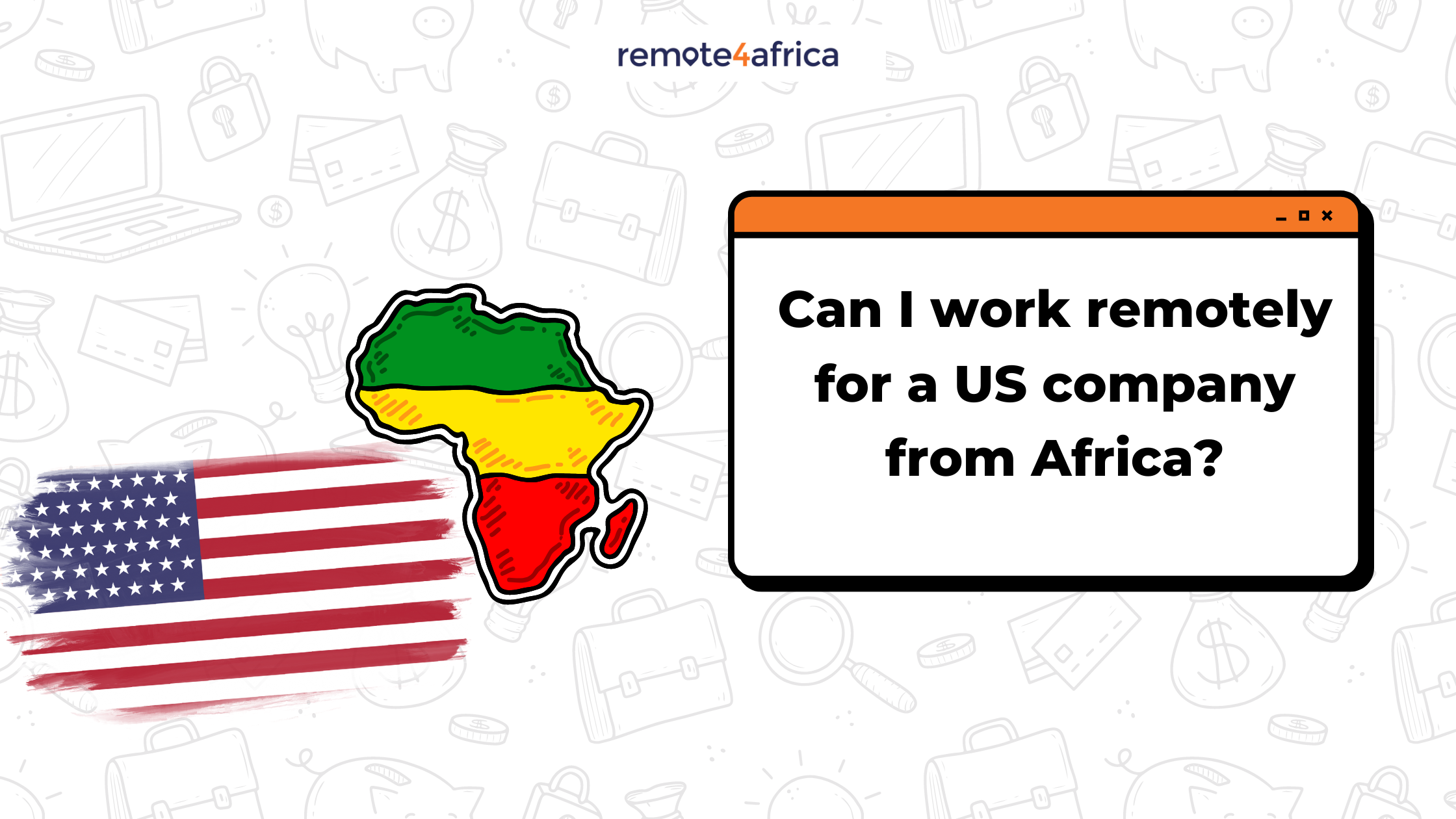Why Many Africans Struggle to Secure Remote Jobs—And How to Fix It
Remote work is booming globally, yet many talented Africans find it challenging to land remote jobs with international companies. Even though 73% of Africans desire remote work and 42% already work from home at least once a week, employers hesitate to hire from the continent.
 Why?
Why?
Many international employers cite concerns about compliance, time zones, and infrastructure. However, a more pressing issue is the lack of awareness about the deep talent pool in Africa. And honestly, I never entirely blame them.
From my experience hiring African freelancers, I have noticed several critical gaps hindering our chances of securing high-paying remote jobs. But the good news? These challenges are fixable.
In this article, I will synthesize the top five reasons why many Africans struggle to get remote jobs and how to overcome them.
1. Poor Written Communication Skills
One of the most significant barriers to remote work is poor written communication.
Remote jobs rely heavily on asynchronous communication—where message exchange occurs without real-time interaction. Employers expect clear, professional, and grammatically correct communication via emails, Slack, and other platforms.
Real-Life Example:
I once interviewed a Kenyan freelancer whose portfolio was outstanding- with a client eager to meet him. However, his communication style was dismissive and unprofessional. His responses were abrupt, and he barely acknowledged the importance of the hiring process.
Despite his skills, his poor written communication disqualified him.
How to Fix It:
1. Use AI tools like ChatGPT to refine your proposals, cover letters, and emails.
2. Improve your writing by reading professional emails and articles.
3. Practice professionalism in all text-based communication.
💡 Remember: The first impression in remote hiring often comes from a written message—make it count!
2. Unprofessional Online Presence
Many African freelancers lack a professional digital footprint, which makes it difficult for employers to trust their credibility.
Your LinkedIn profile, portfolio, and online activity tell employers who you are. If they find poorly written descriptions, outdated information, or inconsistent branding, they may assume you are not serious about your work.
Real-Life Example:
I interviewed four freelancers on Fiverr. Three claimed their location was the UK, Kenya, and the US. Yet, all were in Nigeria. This dishonesty eroded trust immediately and disqualified them before we even discussed their skills.
How to Fix It:
1. Optimize your LinkedIn profile with a professional photo, strong summary, and work samples.
2. Be honest about your location—lying destroys credibility.
3. Build a portfolio website showcasing your work and testimonials.
💡 Tip: International employers often Google your name before hiring. Make sure they find something impressive!
3. Poor Video Call Etiquette
Remote work requires regular video calls, yet many candidates fail at bare video call professionalism.
Common Mistakes:
❌ Bad lighting and camera angles—If your face is barely visible, it creates a poor impression.
❌ Background noise—Distractions from family members, street noise, or TV shows make you seem unprepared.
❌ Poor internet connection—Constant lagging frustrates interviewers.
❌ Looking distracted—Checking your phone, looking away, or engaging with others off-screen is unprofessional.
Real-Life Example:
One freelancer joined a job interview using his phone, placed it on a dirty, blurry lens, and sat in a dark corner with a noisy background. He even talked to someone else mid-call!
The result? Instant disqualification.
How to Fix It:
1. Invest in a cheap phone stand or stack book to stabilize your camera.
2. Face a light source (like a window) to brighten your face.
3. Find a quiet space for calls. If noise is unavoidable, use noise-canceling apps like Krispy.
4. Dress professionally for online interviews.
💡 Pro Tip: If you only have a phone, clean the lens, stabilize it, and use headphones for better audio.
4. Weak Time Management & Inconsistency
Many African freelancers struggle with meeting deadlines and responding promptly to messages. In a remote job, delays and inconsistency kill opportunities.
Real-Life Example:
The same Kenyan freelancer I mentioned earlier was terrible at responding to messages. He would take days to reply, missed scheduled interviews, and was inflexible about timing.
Result? Lost job opportunity.
How to Fix It:
1. Set precise work hours and stick to them.
2. Use productivity tools like Google Calendar, Trello, and Asana to manage tasks.
3. Reply to messages within 24 hours—even to acknowledge them.
💡 Remember: Remote employers expect reliable, self-disciplined professionals. If you cannot manage your time, they will move on.
5. Limited Networking & Job Search Strategy
Many Africans apply for remote jobs impulsively— without networking or using the right platforms.
Common Mistakes:
❌ Applying to too many random jobs without tailoring applications.
❌ Not networking on LinkedIn—most remote jobs come from referrals.
❌ Ignoring niche job boards that specialize in remote work.
How to Fix It:
1. Optimize your LinkedIn and engage with recruiters.
2. Join remote jobs communities like We Work Remotely, Remote OK, and TopTal.
3. Personalize every application—use a strong cover letter and customized resume.
4. Engage with hiring managers on LinkedIn before applying.
💡 Fact: Over 85% of jobs are through networking—not random applications!
Sequitur
Africa is home to highly skilled professionals, but many struggle to land remote jobs due to avoidable mistakes.
If you want to succeed in the remote job market:
✅ Master written communication—your emails and proposals must be clear and professional.
✅ Build a strong online presence—honesty and professionalism matter.
✅ Prepare for video interviews—good lighting, quiet space, and stable internet are essential.
✅ Improve time management—reliability is key to keeping a remote job.
✅ Leverage networking—connections lead to more opportunities than random applications.
By fixing these five key issues, Africans can thrive in the global remote work economy and secure better opportunities.
🔗 Want to land a remote job? Start by polishing your LinkedIn profile and improving your communication skills today!




You must be logged in to post a comment.